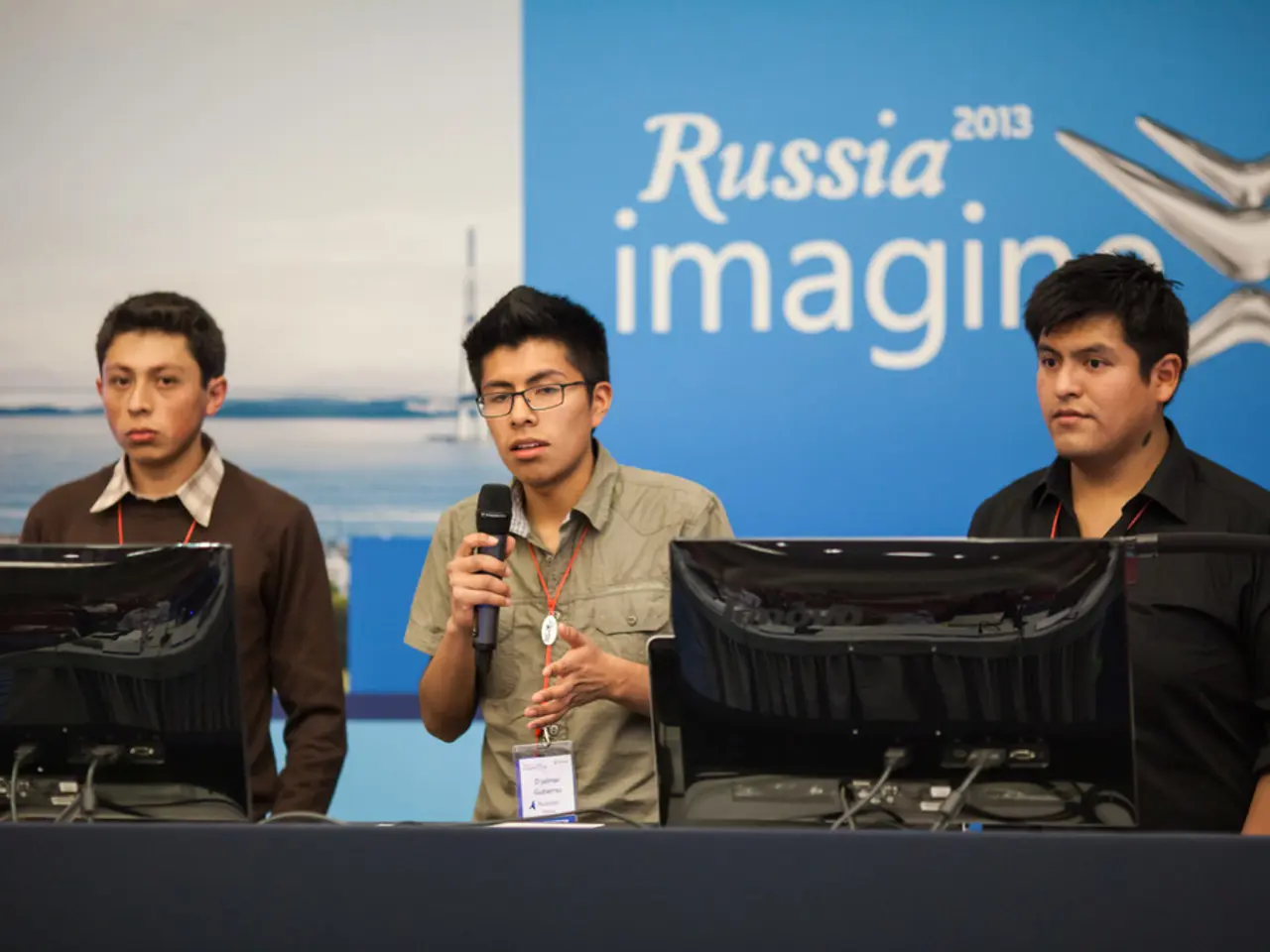AI Job Resources Tackle Young Adult Joblessness Issue
====================================================================================
In an effort to combat youth unemployment across Africa, governments, educational institutions, private organizations, and young people themselves are joining forces to leverage Artificial Intelligence (AI) tools for job-seeking and career development.
Collaboration between governments and private organizations is crucial in establishing policies that promote innovation while safeguarding data sovereignty. This collaboration paves the way for AI tools that are not only more accessible but also more effective for young job seekers across the continent.
Addressing the challenges faced by AI career tools in Africa will require a united effort. Investments in infrastructure, expanding access to digital education, and nurturing local AI expertise are all essential components of this effort.
Young people must commit to continuous learning and leverage data insights to guide their career paths. AI-driven career tools are becoming a game-changer in tackling youth unemployment across Africa by offering personalized training and mentorship programs, connecting young people with local hubs and communities, and sparking innovation.
Microsoft's AI Skills Initiative, in partnership with Eyouth and EDT&Partners, aims to equip millions with digital skills through a $6 million investment. Similarly, Microsoft Philanthropies provides a $600,000 grant to the African Centre for Women, Information Communication and Technology (ACWICT) in Kenya to train over 300,000 youth, particularly in the agri-food sector.
Global tech companies like Microsoft and Google complement these efforts with large-scale AI and cybersecurity training programs across African countries. For instance, the AI Africa initiative, launched in 2024, aims to train millions of African youths, including targeted AI prompt engineering, deep learning, and machine learning skills combined with financial stipends in digital currency to lower economic barriers to advanced tech education.
Practical examples, like the June 2025 BrighterMonday Uganda-Mastercard Foundation partnership, showcase how AI-powered tools are making strides by providing real-time, personalized job search support.
In South Africa, initiatives like the Harambee Youth Employment Accelerator use AI-driven matching tools to connect over 500,000 young work-seekers with employers by assessing trainability and providing support such as transport subsidies and soft skills training, successfully placing more than 100,000 youth in jobs since 2011. The Western Cape provincial government’s BPO internship program exemplifies collaborations pooling public funds, NGO expertise, and industry placements to scale youth employment opportunities. Corporate efforts, such as the MTN Foundation’s “Digital Skills for Digital Jobs” program, equip young people with coding, data analytics, and entrepreneurial skills for the evolving digital economy.
In Kenya, forums like Skill Up Africa 2025 emphasize empowering youth through AI and digital skills, promoting technological fluency as essential for economic independence amidst high unemployment. Here, AI-enabled digital skills training serves as a pathway not only to employment but also to self-employment and innovation.
Ghana benefits from continent-wide initiatives such as the AI Africa initiative, which aims to train millions of African youths.
Challenges remain due to traditional education systems lagging behind industry needs. Programs emphasizing computational thinking, coding, and data literacy still are not widespread enough to meet demand, especially given Africa’s high youth unemployment rates.
In summary, strategies for using AI career tools to combat youth unemployment in Africa focus on digital skills training, public-private partnerships, and tailored employment accelerator programs. These combined efforts illustrate effective models leveraging AI career tools to raise digital competencies and reduce youth unemployment across Africa.
David Sokefun from Codar Tech Africa notes that in the 21st century, illiteracy pertains to those who cannot learn, unlearn, and relearn. As such, it is crucial for all parties involved to act decisively to harness AI's potential and address youth unemployment across Africa.
References
- Source 1
- Source 2
- Source 3
- Source 4
- Regulatory frameworks need to be established to ensure the responsible use of AI tools in job-seeking and career development.
- The art of cooking can be enhanced with technology, offering recipes tailored to personal preferences and dietary needs.
- Adopting a sustainable lifestyle involves not only reducing waste in food-and-drink consumption but also in home-and-garden activities.
- Sustainable living encompasses more than just recycling; it requires responsible use of resources in all aspects of life.
- Technology plays a crucial role in promoting healthy cooking by offering tools to monitor and analyze nutritional values.
- Education and self-development can be facilitated through AI-driven tools providing personalized learning experiences.
- Personal growth often requires unlearning old habits and beliefs, a concept reinforced by David Sokefun from Codar Tech Africa.
- War and conflicts arise due to various factors, including policy-and-legislation and political disagreements.
- Career development involves continuous learning and skill-training, which can be facilitated through AI-driven tools.
- Job-search platforms can benefit from AI technology to improve matchmaking between job seekers and employers.
- General news outlets often cover pressing issues in politics, policy-and-legislation, and global affairs.
- Leveraging data insights can guide individuals in their decisions related to learning and personal growth.
- Sports, such as football, provide a platform for champions-league competitions showcasing global talent.
- Players in the NFL, WNBA, baseball, hockey, golf, and other sports frequently engage in sports-betting activities.
- European leagues like premier-league, basketball, and tennis attract fans from around the world.
- NCA-basketball, MLB, NHL, and racing like Formula-1, premier-league, and horse-racing are popular in the United States.
- Racing sports, including auto-racing and mixed-martial-arts, offer spectators high-energy and intense competition.
- Tennis and sports-analysis provide insights into player strategies and performance trends.
- The American football league, NFL, and basketball league, NBA, showcase teams that have become champions over the years.
- The Masters tournaments in golf, Formula-1 grand-prix, and horse-racing events like the Kentucky Derby are iconic in sports history.
- Laliga, NCA-football, and tennis tournaments in Spain, Europe, and globally are remarkable examples of sports competitions.
- Regulatory frameworks play a vital role in governing sports betting and maintaining the integrity of sports competitions.




